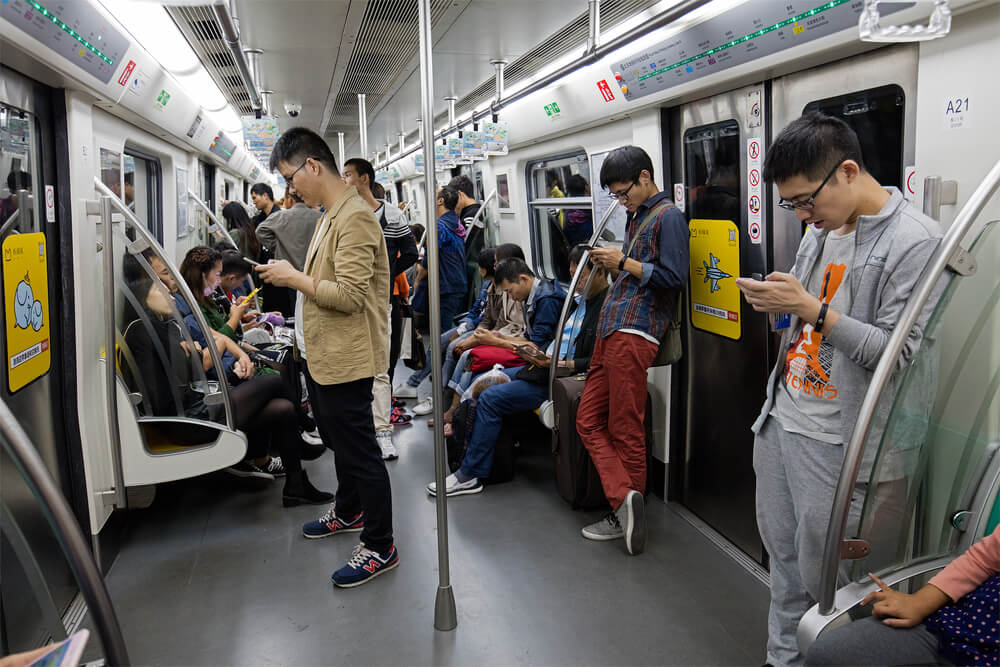In order to avoid total collapse of its pension system, China is trying to catch the last train to reform.
Parliament extended working life by up to five years, from 60 to 63 years for men, from 50 to 55 years for women working in industry, and from 55 to 58 years for women working in administration and management positions.
China will implement this change, unprecedented in the past 50 years, gradually and in phases over the next 15 years, beginning in January. This demonstrates the authorities' extreme caution in dealing with possible negative reactions from the population, which are already manifesting themselves.
There are many indications that the central authorities in Beijing were forced to take this step. Since 2020, there have been announcements about changes to the state pension system, but no progress has been made, partly due to the COVID-19 pandemic period.
Getting used to the new reality
With these new measures, the Chinese must begin adapting to the new reality, as entire generations began and ended their working careers under relatively protected conditions.
China was the country with one of the lowest retirement age. By raising it, it is approaching more developed economies, where the working life is longer.
One of the motives for prolonging the working life is the expected filling of the budget due to a larger tax base
One of the motives for prolonging the working life is the expected filling of the budget due to a larger tax base and, at the same time, lower expenses from the pension fund, which is currently burdened and in constant decline.
Only two decades ago, the ratio of the number of employees to the number of pensioners was 10 to 1, and in 2030 it will decrease to 4 to 1.
The largest part of the Chinese population, slightly more than one billion, relies on the public pension system, while two other pillars—corporate and private—are still in their early stages and have attracted a much smaller number of people.
Youth dissatisfaction
This structure, however, does not ensure peaceful days for the majority of the population, since the average pension amounts to slightly less than $500, and basic pensions in some cases are only around $30.
The first group most dissatisfied with the new measures are the young Chinese, who see raising the retirement threshold as a danger of making it even more difficult to find a job. Almost every fifth person in this group (17.1%), statistically set from 16 to 24 years of age, was unemployed in July of this year.
 The most dissatisfied with the new measures are the young Chinese, who see raising the retirement threshold as a danger of making it even more difficult to find a job
The most dissatisfied with the new measures are the young Chinese, who see raising the retirement threshold as a danger of making it even more difficult to find a job
This is the highest level since December last year, when, using a new methodology, China again started to publish data on the youth unemployment rate, which is otherwise one of the most unfavourable parameters of the national economy.
They express their dissatisfaction with the new measures on social media, not only due to the reduction of already low employment opportunities, but also due to the small pensions they can expect after retiring.
Another double-edged sword China's economic planners face is the accelerated trend of population ageing, for which raising the retirement age will be only a mild compensation.
From being one of the youngest nations until just a few decades ago, China has become an ageing society, which means that the pension fund will have an increasing number of beneficiaries.
From the current slightly more than 20% of the population over the age of 60, in 2040 almost 30% of the population over the age of 60 will live in China, which will be a larger population than the US with about 400 million people.
A new burden on the economy
Given the declining total population, the increasing number of pensioners in the population structure will likely place an even greater burden on the national economy.
The National People's Congress explained that it decided to raise the retirement age in order to "adapt to the new situation of demographic development in China and fully develop and utilise human resources."
This measure comes at a time when the country's economic trends are unfavourable, and it is already being questioned whether the projected growth of 5% at the end of the year will be achieved.
China will experience turmoil in the labour market and among the entire population as they adjust to the new retirement conditions, even though the implementation will begin next year and proceed gradually.
More seniors remaining in production will mean reduced productivity, in addition to job vacancies for younger people
More seniors remaining in production will mean reduced productivity, in addition to job vacancies for younger people. And the ever-increasing life expectancy of the Chinese will also mean an increase in the cost of elderly care, which many will not be able to afford with the current level of pensions.
Developed economies face similar challenges whenever they start to adapt their pension systems to changing demographic and production trends.
However, none of them have maintained a low retirement age for decades, such as China, which, along with wanderings in demographic policy, has resulted in the current moves that will undoubtedly come as a great shock to the entire population.
“This pace is no different from kicking a political time bomb to future generations,” said Yi Fuxian from the University of Wisconsin-Madison, according to The Wall Street Journal.